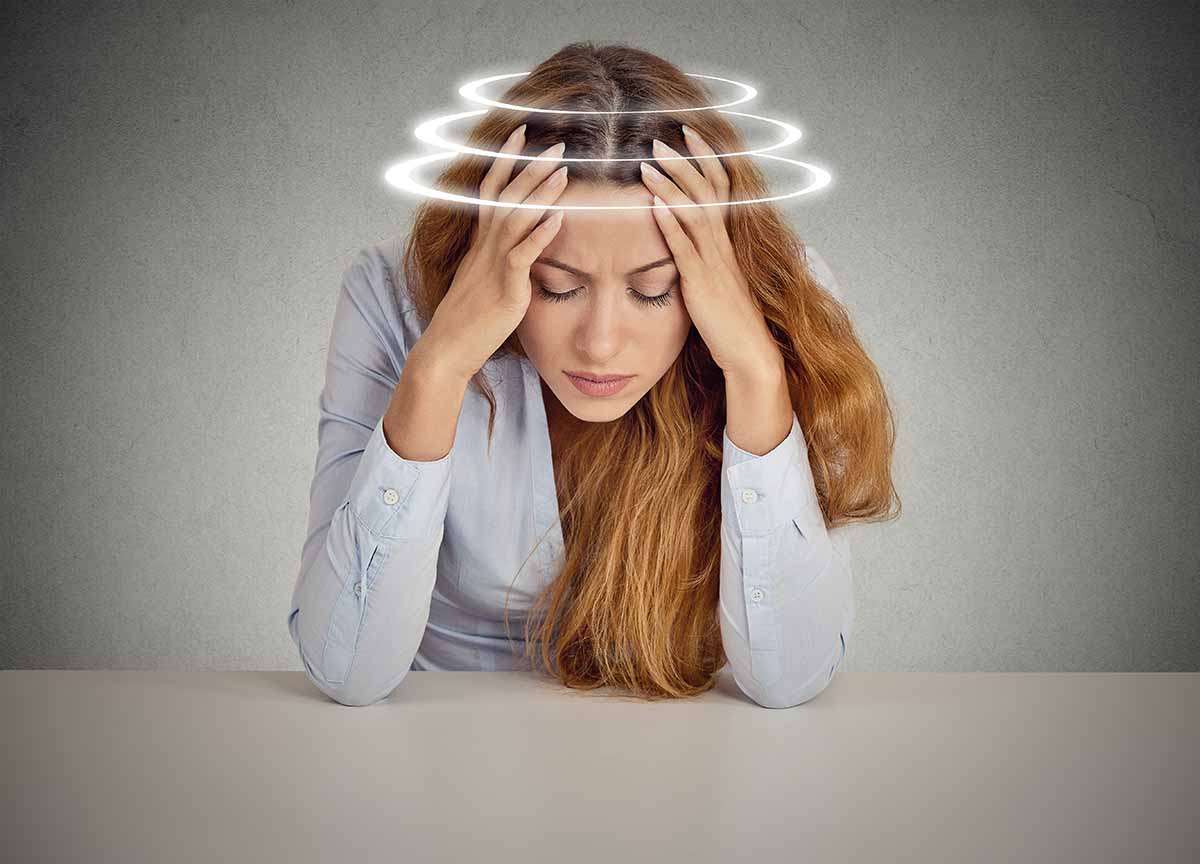Vertigo
Causes, Symptoms, and Treatment for Vertigo

What’s Vertigo?
Vertigo, is a common cause of dizziness, accounting for ~20% of all cases of dizziness. Vertigo is not referred to as a condition, but rather a symptom or sensation of your head spinning or feeling a bit off-balance.
Vertigo Symptoms
Vertigo can occur at any age and typical symptoms include a room spinning sensation lasting seconds to minutes, at times with associated nausea. Vertigo is typically triggered by certain head movements from rolling over in bed, looking up in the shower when washing one’s hair, sitting back in a dentist office chair or bending down to tie a shoe.
Common symptoms of vertigo include:
- Head spinning, maybe swaying and pulling, involuntarily to one side
- Feeling that you’re off-balance
- Nausea, at times accompinnes by a headache or sweating
- Vomiting
- Abnormal or jerking eye movements (nystagmus)
- Ringing in the ears
- Hearing loss
Ear Crystals and Vertigo
Within the inner ear, small crystals line our balance center. These ear crystals help us to maintain our normal balance and sometimes they can become dislodged and get trapped within a part of the inner ear that controls our balance. As we move our head in different directions, those dislodged ear crystals affect our balance giving us a room spinning sensation for several seconds to minutes. When our head movement stops, the crystals stop moving, and the dizziness gradually subsides.
What Causes Vertigo?
There are typically 3 causes of vertigo:
- BPPV, or benign paroxysmal positional vertigo, occurs when tiny calcium particles called otoconia are dislodged and then collect in your inner ear. They can flow freely in your ear, especially into the posterior semicircular canal. When these crystals flow to the lowest part of the posterior semicircular canal, the balance nerve is stimulated thus causing vertigo and jumping eye.
- Meniere’s disease is an inner ear disorder that the medical field believes is caused by a buildup of fluid and changing pressure in the ear. It can not only cause vertigo but also tinnitus and hearing loss.
- Vestibular neuritis is an inner ear issue typically caused by a viral infection. It can result in inner ear inflammation around the nerves that assist the body in recognizing balance.
How We Diagnose and Treat Vertigo (BPPV)
The best way to diagnose vertigo is to be evaluated by a BergerHenry ENT doctor who will perform a thorough history and physical examination. An audiogram, or hearing test, is performed during your visit to ensure that no other inner ear abnormalities are contributing to the dizziness. If the evaluation leads to vertigo as the probable cause of the dizziness, specialized testing by a balance and vestibular rehab therapist is performed.
Vestibular rehab is a form of physical therapy which is a gentle, non-invasive treatment for vertigo. Specifically, a test called the Dix-Hallpike is performed. During the test, the patient is placed in both a sitting up and then lying down position with the head moved in different positions to stimulate the dizzy symptoms. If the test is then found to be positive, an Epley Maneuver is performed to put the displaced crystals back in their original position, thereby treating the dizziness.
